Titanium Flange For Medical and Pharmaceutical
Titanium and titanium alloys have gradually become ideal materials in the medical field due to their excellent biocompatibility, high strength, low density, good corrosion resistance and other characteristics. Titanium flanges, as an important component of titanium metal products, play an indispensable role in medical equipment, implantable devices, medical pipeline systems, etc.
- Grade 1 Titanium Flange
- Grade 2 Titanium Flange
- Grade 5 Titanium Flange
- Grade 7 Titanium Flange
- PN2.5、PN6、PN10、PN16
- PN25、PN40、PN63、PN100
- Class150、Class300、Class600
- Class900、Class1500、Class2500
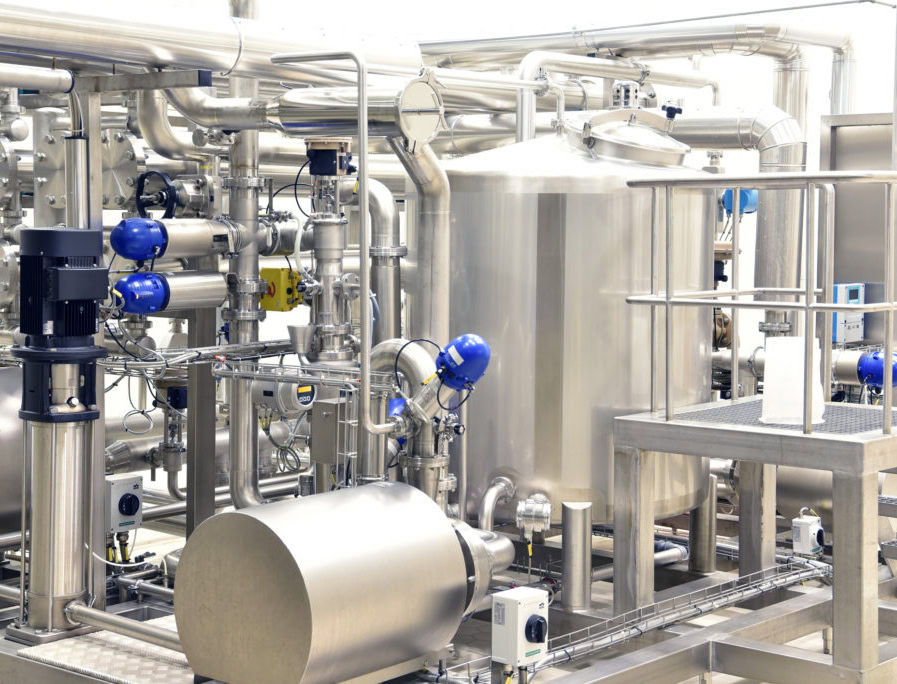
Trustworthy Titanium Flange Manufacturer For Medical Field
As a key connection component, titanium flange plays an indispensable role in the medical and pharmaceutical fields with its excellent performance. Titanium and titanium alloys have excellent biocompatibility and will not produce adverse reactions to human tissue. This makes titanium flanges an ideal connection component in medical equipment, from implantable medical devices to in vitro diagnostic equipment. At the same time, its excellent corrosion resistance can resist the erosion of various chemical substances, meet the strict requirements of high cleanliness and chemical resistance of equipment in pharmaceuticals, and ensure the quality and stability of drug production.
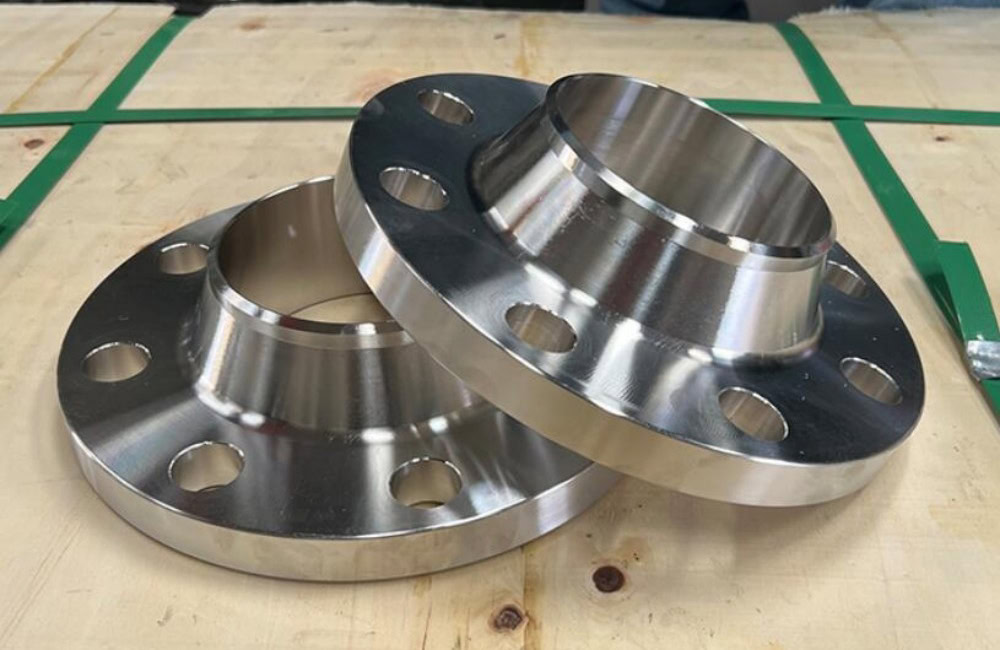
Welded neck titanium flanges can withstand higher pressures and harsh working conditions. Good sealing performance reduces the risk of leakage. Commonly used for steam pipe connections in autoclave equipment, as well as pipes connecting reactors, distillation towers and other equipment.
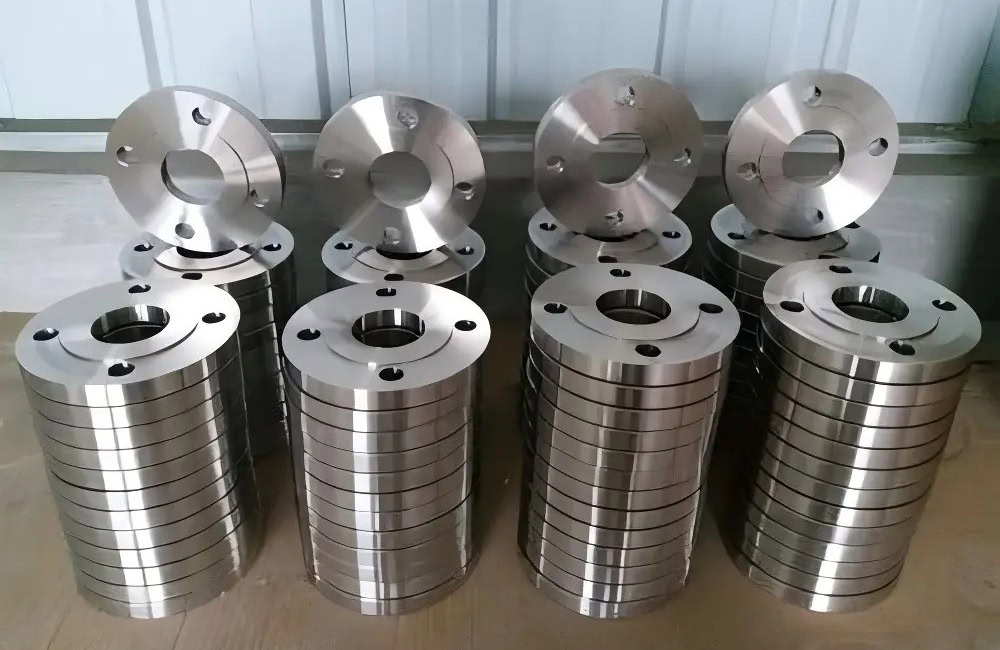
Flat welded titanium flanges have a simple structure and low cost, and are suitable for medical pipeline systems with low pressure levels and weak corrosion. For example, in hospital bathroom drainage and ventilation systems, the corrosion resistance of titanium extends the service life of the pipeline.
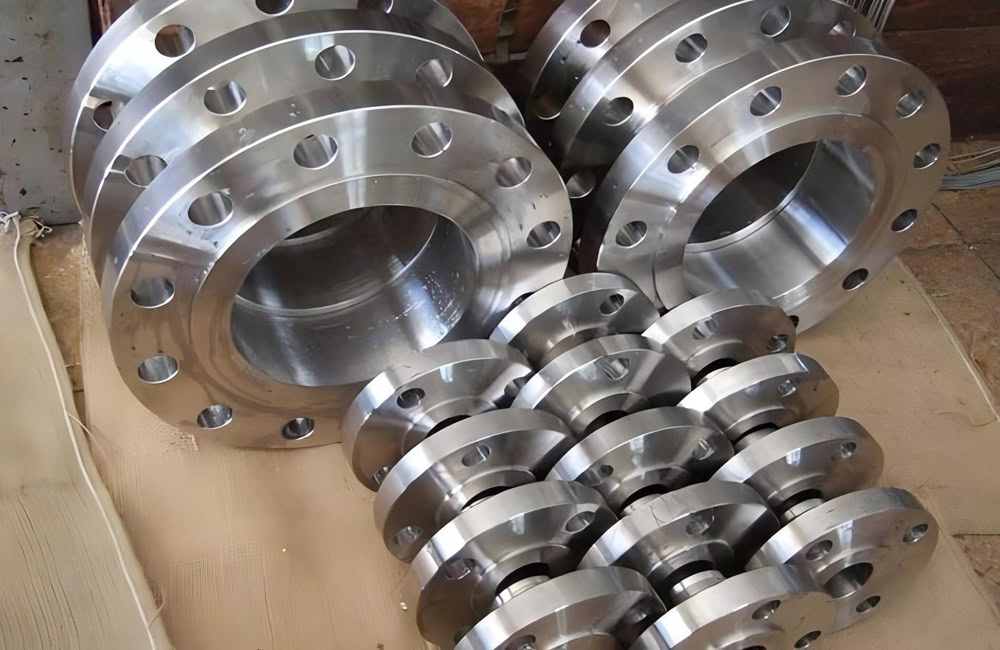
Socket welded titanium flanges are suitable for small-caliber (usually DN≤50mm), high-pressure and high-vibration medical pipeline systems. They effectively prevent tiny leaks and ensure that gas purity is not affected. At the same time, their compact structure can reduce space occupancy.
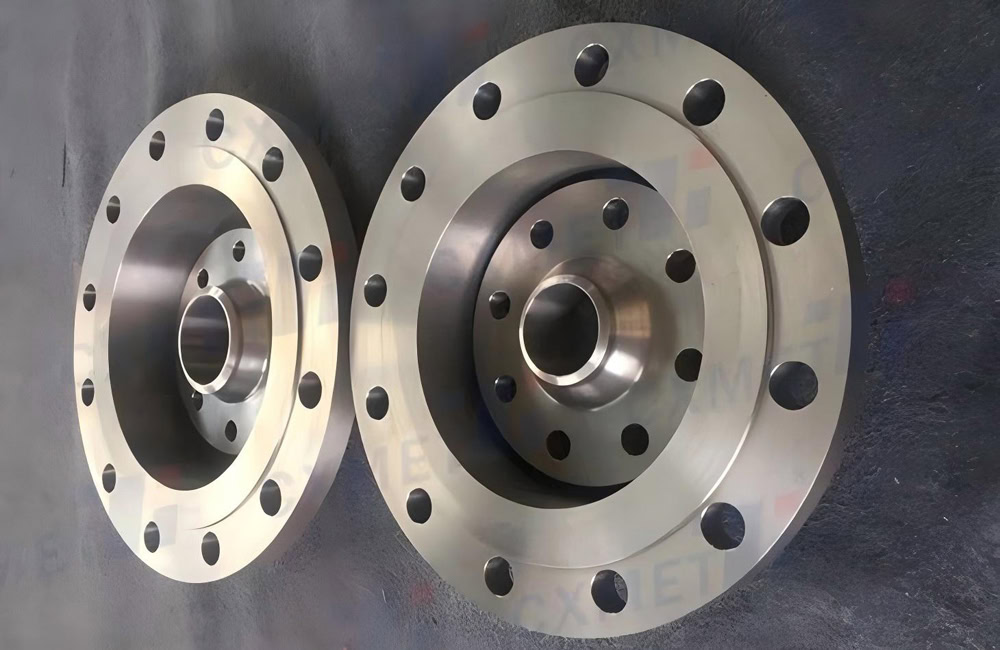
Lap-joined titanium flanges consist of loose flange rings and flanged short sections. They are suitable for medical equipment that is frequently overhauled or replaced, such as reactor pipeline connections. Its loose tube structure allows a certain degree of displacement and thermal expansion of the pipeline.
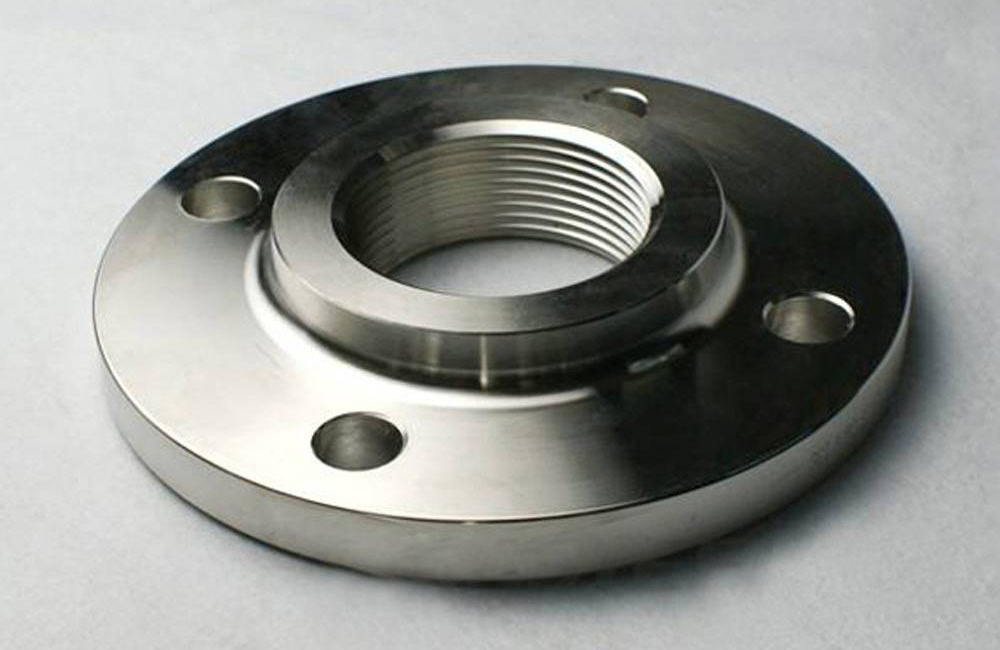
Threaded titanium flanges are connected to pipes through internal or external threads, and can be quickly installed and disassembled without welding. They are suitable for connecting low-pressure, small-diameter pipes, such as connecting small gas cylinders in hospital laboratories.
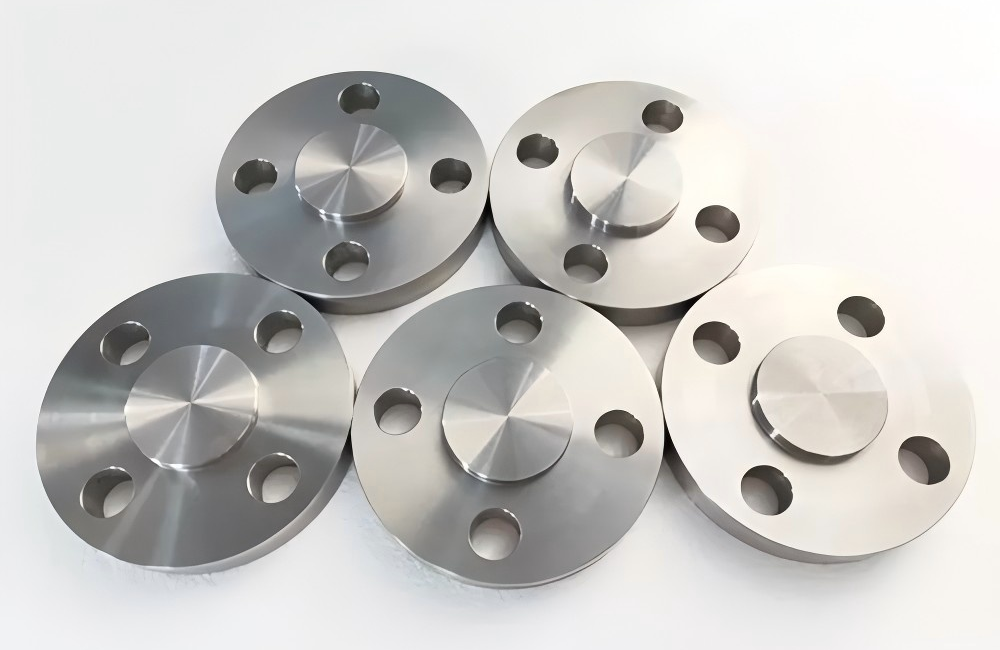
Blind titanium flange is a solid disc, used to close the end of the pipe or reserve the interface, with good pressure bearing capacity and sealing. Blind titanium flange can temporarily close the old pipe port to prevent water leakage. Its corrosion resistance is also suitable for acid and alkali cleaning, etc.
Titanium Grades For Medical and Pharmaceutical
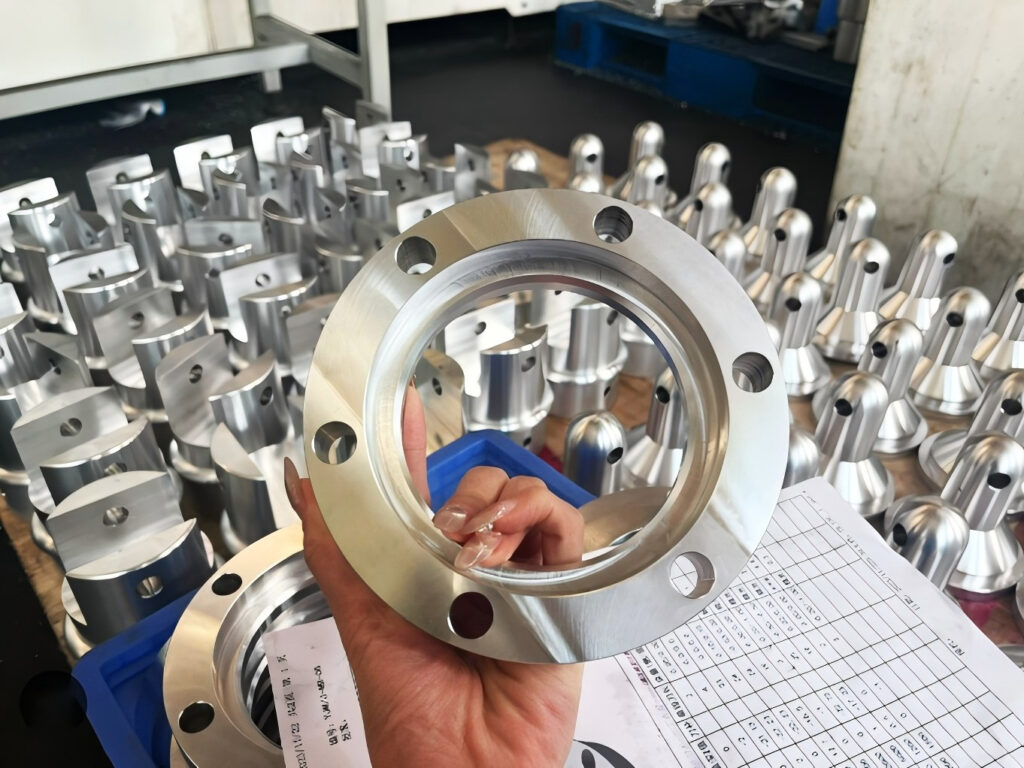
Grade 1 Titanium
Manufacturing various flanges through forging, rolling, stamping, etc. Its strength is relatively low, but it has excellent ductility and corrosion resistance, and can maintain stable performance in some medical and pharmaceutical environments with low corrosiveness. For example, the connection of less corrosive material conveying pipelines.
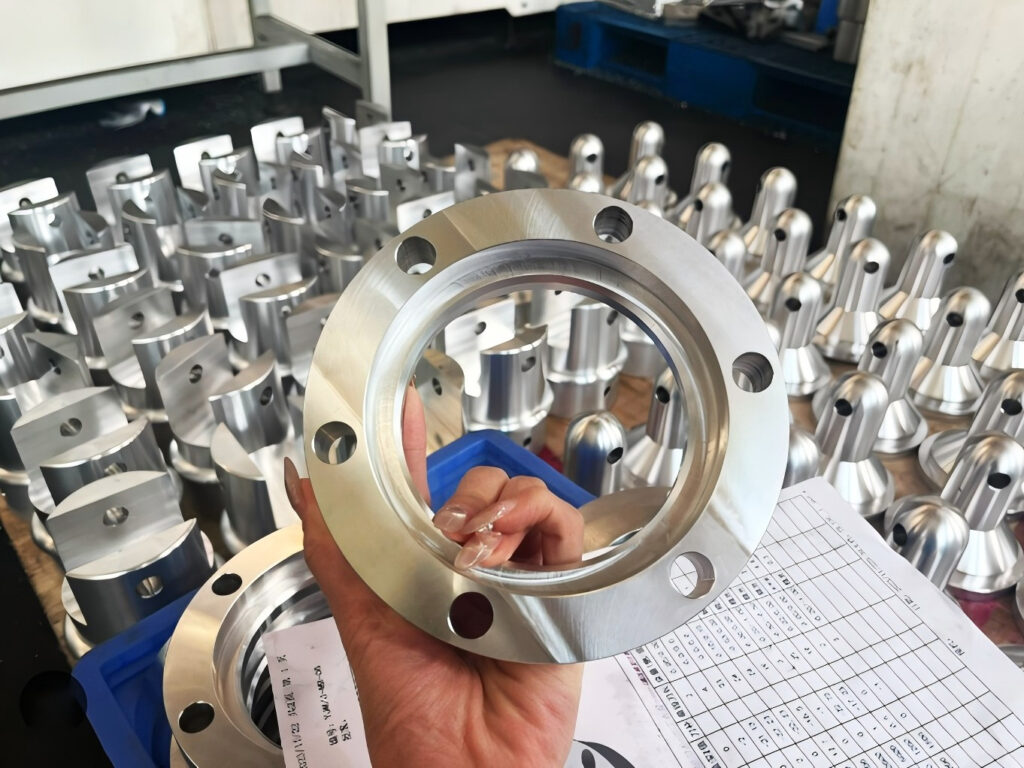
Grade 2 Titanium
On the basis of maintaining good formability and corrosion resistance, the strength is improved, and its yield strength is between 170-240MPa and the tensile strength is between 240-345MPa. It is used for pipeline connections of medical equipment, such as medical gas delivery pipelines, water supply and drainage pipelines, storage tanks, etc.
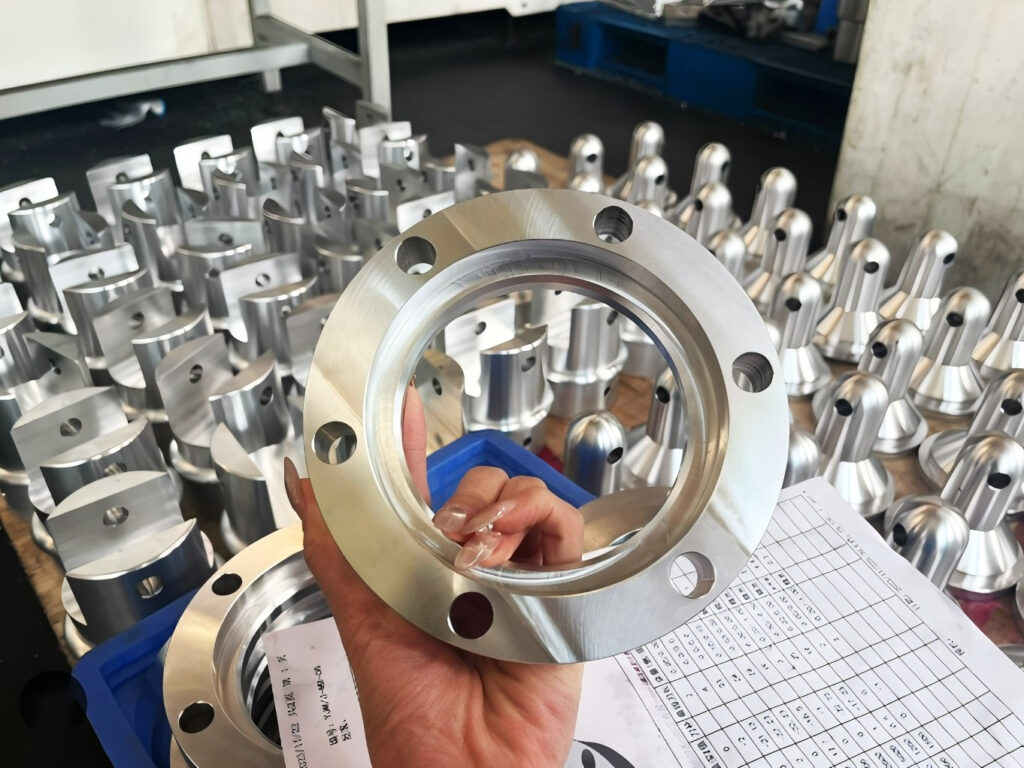
Grade 5 (Ti-6Al-4V) Titanium
Its yield strength can reach more than 830MPa and its tensile strength exceeds 900MPa. At the same time, it also has excellent fatigue resistance and corrosion resistance. It is used to connect pipelines with high temperature, high pressure or highly corrosive media. Such as pharmaceutical reactor inlet and outlet pipeline connections.
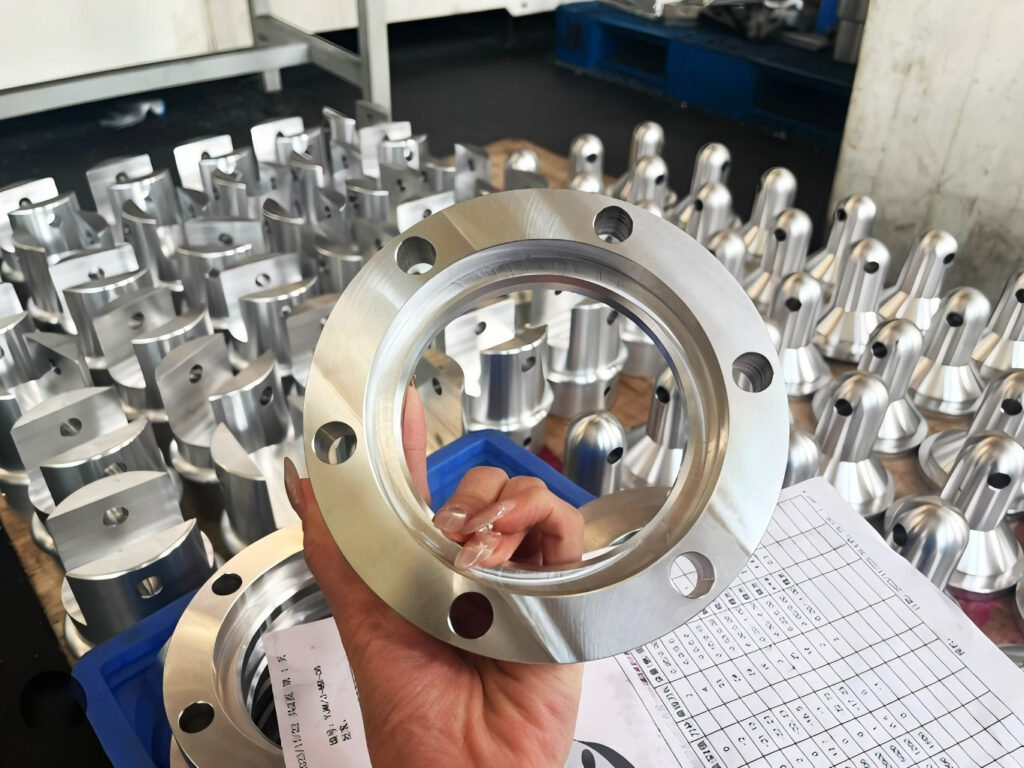
Grade 7 Titanium
0.12 – 0.25% palladium (Pd) is added to Grade 2. The addition of palladium significantly improves the corrosion resistance of the material. In some medical and pharmaceutical environments containing these highly corrosive media, Grade 7 titanium alloy can effectively extend the service life of the equipment.
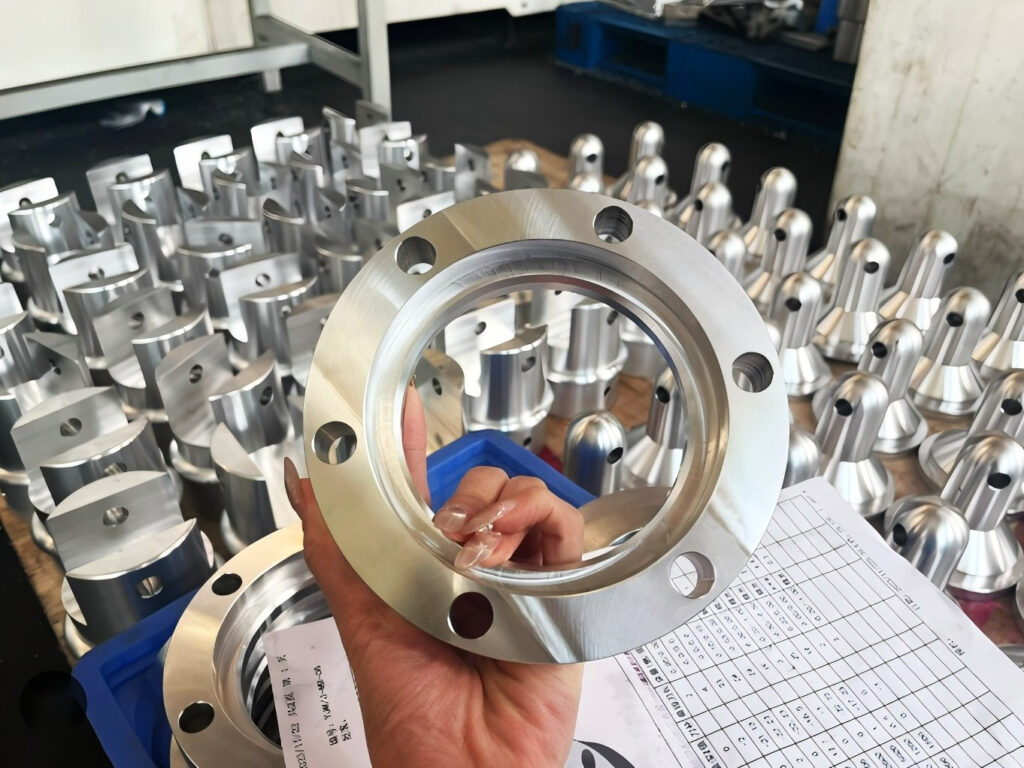
Grade 9 (Ti - 3Al - 2.5V) Titanium
It has medium strength and good weldability, good corrosion resistance, and can maintain good toughness in low temperature environment. Its yield strength is between 480 – 620MPa. It is used for medical equipment pipe connections in low temperature environment.
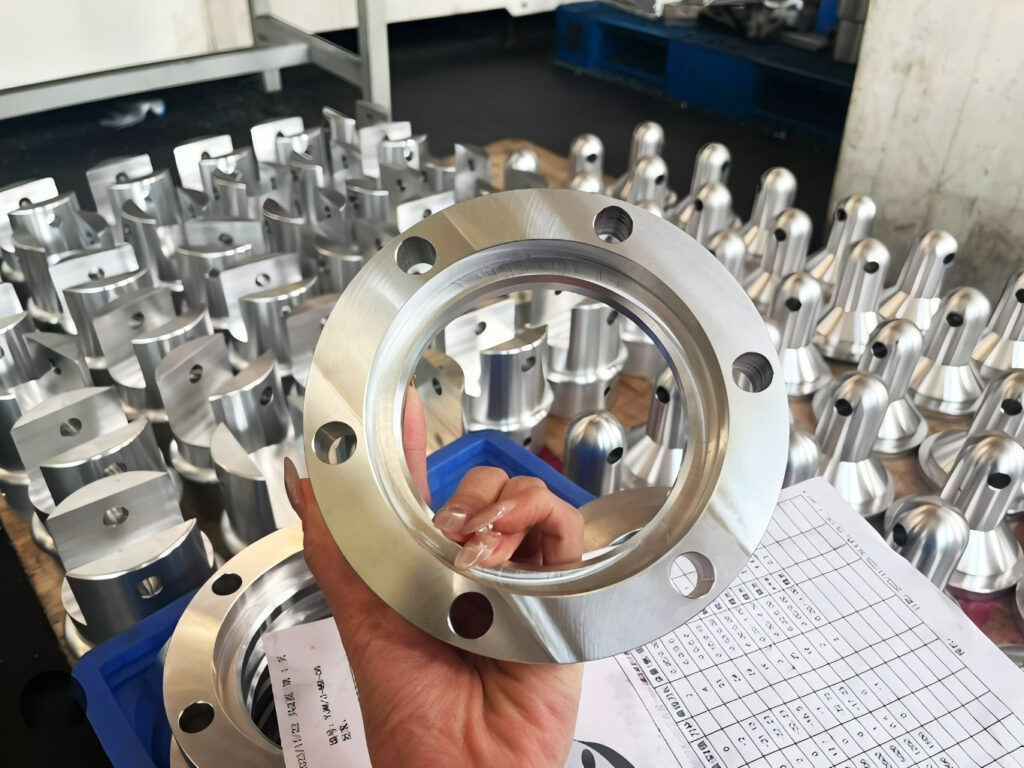
Grade 12 (Ti - 0.3Mo - 0.8Ni) Titanium
Molybdenum improves its strength and corrosion resistance. It exhibits excellent corrosion resistance in chlorine-containing media. It is used to connect medical equipment pipes that come into contact with chlorine-containing disinfectants or other chlorine-containing media.
Titanium flanges play an irreplaceable role in the medical and pharmaceutical fields with their diverse types and excellent performance. Different types of titanium flanges, such as welding neck titanium flanges, flat welding titanium flanges, socket welding flanges, tower-type titanium flanges, threaded titanium flanges and blind titanium flanges, each have unique structural characteristics, welding or connection methods, advantages and applicable scenarios, which can meet the connection requirements of medical and pharmaceutical equipment pipeline systems under different working conditions. From dialysis equipment in the medical field to pharmaceutical synthesis reactors, sterile drug filling production lines, pharmaceutical wastewater treatment systems, etc.